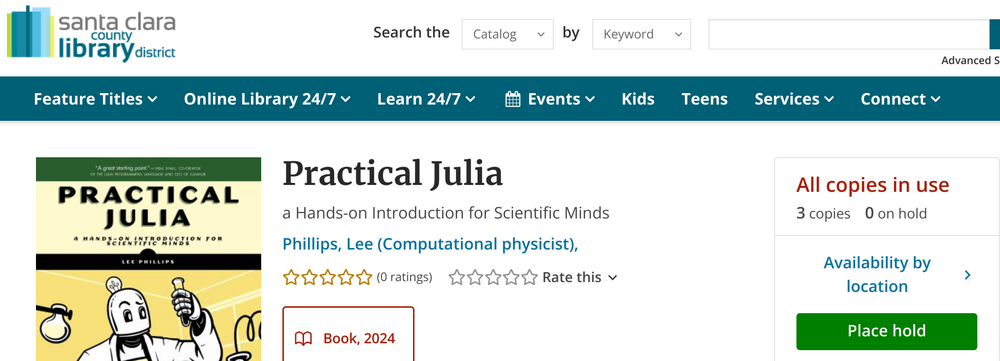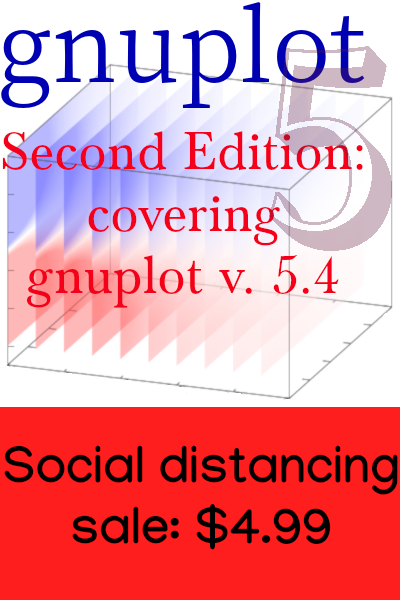My Julia Book is in Libraries
I’ve made countless amazing discoveries in libraries. I don’t know where I’d be without them. During my elementary school years, I walked to one of two public libraries near our apartment on the Lower East Side to do my homework or seek entertainment. In high school I learned how to perform research at one of the world’s great resources for scholars, the beautiful Main Branch of the New York Public Library.
Soon after I encountered the unique charms of university libraries. I remember sliding an interesting looking volume off the stacks and finding that it was printed in the 1700s. I didn’t know if it was an oversight to leave such a thing thus exposed, but I didn’t tell anyone. I carefully browsed the compact packet of history in my hands, and slid it gently back onto the shelf. I love the Internet, but some forms of knowledge will always be beyond its reach.
Cousins to academic libraries are those maintained by other kinds of institutions. The well-stocked library at the Naval Research Laboratory was a good friend during my internment there. They had rows and rows of bound scientific journals stretching back to the 19th century; another example of invaluable physical contact with history.
Libraries are not only repositories of published materials. They curate, guard, and organize the unpublished artifacts that are often the only places where the real stories of history reside. During research for my book about Emmy Noether, I spent much quality time absorbing the contents of boxes of letters, photographs and postcards, preserved in Special Collections and rooted out for me by those heroic professionals, the Librarians.

My book about Julia came out on Halloween. It’s doing well, and has been received well. I hope it encourages continued adoption of the best language for scientific computing. It’s also in libraries, and seems to doing well there, too. Some authors (to my surprise) resent libraries lending out their books. They feel it cuts into sales. Personally, I love seeing this book in libraries, and knowing that people are checking it out. It means that people who can’t afford new books can still make use of it. It can participate in one of my favorite pastimes, browsing in a library. I’m far from convinced that library lending is a net replacement of book sales. I’ve bought books that I first encountered in a library. I’m sure having a book on the open stacks is one of the most effective promotions available.
Speaking of which, it’s the season for pondering appropriate gifts. You should definitely buy several copies of Practical Julia for the current or aspiring scientists, engineers, and programmers in your life.
